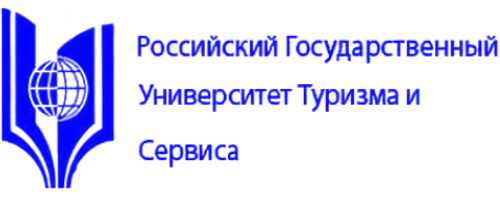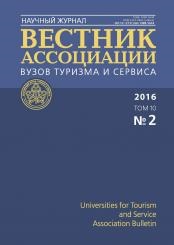Moscow, Moscow, Russian Federation
The article presents the results of the authors’ research into the role of state communications policy in the process of learner sociocultural competence development (case study: higher education institutions offering the tourism industry personnel training programmes). The driving force behind the research was the authors’ belief in the unmonitored and frequently destructive influence of the media in general and the Internet in particular on the personality development of the youth, especially on the development of the system of values and social competences of those majoring in tourism-related disciplines. The research was empirically based of the starting data obtained from media publications content and interviews with educational process participants. The analysis of the data shows the disbalanced representation such dominants as ethics and communication standards, the ethics of cross-cultural communication, specifics of cross-cultural communication, tolerance, human ecology, human capital development, all of which are significant in terms of their positive contribution to the students’ moral development. The results of the research bring the authors to the conclusion that it is imperative that the state should initiate a professional inspection of the Internet content, especially the media publications concerning Russian history and the strategic objectives of modern Russian social development. The authors also propose a revised model of the state communications policy implementation as applied to the development of sociocultural competences of students majoring in tourism-related disciplines. The three levels of the model structure are the content level, the index level, and the reference level. The content level presupposes a targeted development of content; the index level involves quality inspections of media publications; the reference level concerns the creation of expert consultation mechanisms available for web communities and blogger to ensure high quality consistency and data soundness of the content produced.
state communications policy, sociocultural competences, tourism sphere.
Введение
Государственная информационная политика — это одной из направлений государственной политики, затрагивающей особую сферу жизнедеятельности людей, связанную с воспроизводством и распространением информации, удовлетворяющей интересам государства и гражданского общества и направленной на обеспечение творческого, конструктивного диалога между ними и их представителями [1, c. 38].
Суть информационной политики отразил в одной из своих работ И. Н. Панарин — крупнейший исследователь в области информационной политики и политтехнологий. В частности, он отметил, что «человек ежедневно получает большой объем информации и самостоятельно или с чьей-то помощью формирует свое отношение к событиям… Для формирования общественного мнения очень важен соответствующий комментарий, который будет дан информационному сообщению… До сведения населения может доводиться информация не только о реальных, но также и о не существующих и не существовавших событиях. Этот процесс можно назвать моделированием сознания населения в рамках создания определенной дезинформационной картины» [2, с. 19–21].
В силу своего возраста, отсутствия жизненного опыта молодому поколению очень трудно ориентироваться в многообразии информации. Проблема, называемая «вызовом времени», встала перед российской молодежью в связи с многократным увеличением информационного потока. Логическим продолжением стало не только расширение кругозора, но и возникновение ложных представлений о современном мире и обществе. Из целостного знания «выхватываются» отдельные положения, однобокие трактовки тех или иных событий, используются случайные исторические факты, которые не позволяют видеть в целом картину исторического процесса. Это напрямую влияет на молодежь, позволяет ей делать неверные, с точки зрения науки, выводы и умозаключения. Например, современная ситуация с патриотизмом в молодежной среде, напрямую связана с недостаточно продуманной и мощной государственной информационной политикой.
1. Popov, V. D. Informatsionnaia politika: uchebnik [Communications policy: textbook]. Moscow: RAGS Publ., 2003. p. 38
2. Panarin, I. Pervaia mirovaia informatsionnaia voina. Razval SSSR [The first world information war: Societ collapse]. St.-Petersburg: Piter Publ., 2010. Pp. 19-21.
3. Abramov, A. V. 2013. Modern Russian patriotism: What is it? // Bulletin of Moscow State Regional University (Electronic scientific journal), № 4. URL: http://evestnik-mgou.ru/Articles/View/508
4. Sakharchuk, E.S., Khanbabaeva, Z.M., and Daitov V. V. Analysis of Practice Centered Aspects of Educational Programs in the Sphere of Tourism and Hospitality. World Applied Science Journal 27 (Education, Law, Economics, Language and Communication): 305-308, 2013.
5. http://ria.ru/valdaiclub_tenth_anniversary/20130910/962212968.html (Accessed on November 11, 2013)
6. http://www.mn.ru/blog_reference/20120507/317328193.html (Accessed on November 11, 2013)
7. http://wciom.ru/index.php?id=459&;uid=114195 (Accessed on November 11, 2013)
8. http://wciom.ru/index.php?id=459&;uid=114310 (Accessed on November 11, 2013)







